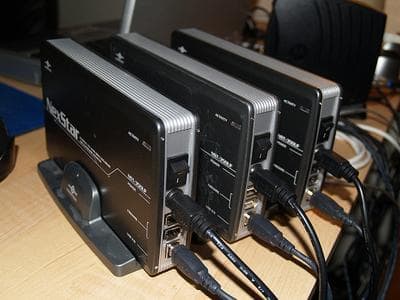Advertisement
Are You A Digital Hoarder?
Resume
We know what physical clutter looks like--stacks of newspapers, dusty knick-knacks, piles of clothes. But digital clutter is also becoming an increasing problem.
Josh Zerkel, Certified Professional Organizer®, told Here & Now's Robin Young that his clients' computers can be as messy as their offices.
Tens of thousands of emails, old photos, and even e-books take up hard drive space and often make it difficult to find needed information quickly.
"I see people hoarding photos, movies, music files--that in truth they'll probably never look at again."
Josh Zerkel, professional organizer
Zerkel says it goes beyond just lack of organization-- it turns into a disorder. For instance, many of his clients don't delete emails because they're afraid of parting with them.
"I see people hoarding photos, movies, music files--that in truth they'll probably never look at again," he said.
He also has clients who "are keeping hundreds or thousands of photos from events that they may not even recall." He says they may not even like the person who is in the photo with them.
Zerkel says the problem has gotten worse since storage on hard drives has become less and less costly.
"You can buy a terabyte hard drive for under a hundred dollars now," he said.
Zerkel says you know you have too much if your hard drive is full and you just got a new computer!
How To Simplify Your Digital Life
1.) Make Choices: "You are not obligated to be on every social network or receive every email newsletter... the people that are best able to manage these things are the ones who decide which things make the most sense for them," he said. When it comes to what you're saving on your hard drive, think about what is driving you nuts and start deleting there, Zerkel says.
2.) Sift through emails: Delete those you won't need, archive others, and develop a strategy for moving forward.
3.) For computer files, use the same category names on your computer as you do on paper. "The more you use the same structures and folder styles, the easier it will be to find and put things away in both places," Zerkel writes.
4.) Label your file methodically. Even though each individual paper in your filing system doesn't need a name, each computer file does. A file name should contain a description, the version number, the date it was created, and who created it. You should be able to find what file you're looking for without having to open it.
Guest:
- Joshua Zerkel, Certified Professional Organizer® and owner of Custom Living Solutions in San Francisco, he also blogs about digital organization
This segment aired on April 12, 2012.